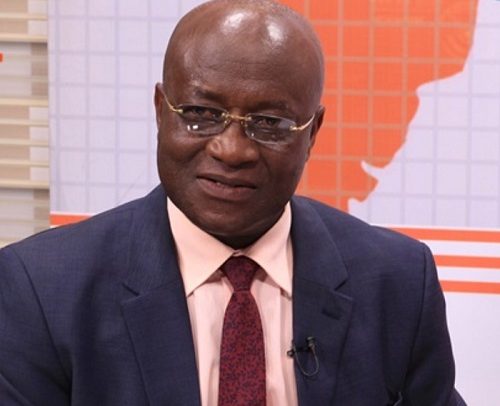Osei Kyei Mensah-Bonsu
GOVERNMENT IS seeking to introduce a financial sector clean-up levy of 5% on profit-before-tax of banks to help defray outstanding commitments in the sector.
Osei Kyei Mensah-Bonsu, Minister for Parliamentary Affairs, who presented the 2021 Budget Statement and Economic Policy to Parliament Friday in Accra on behalf of President Akufo-Addo, said this levy would be reviewed in 2024.
“The financial sector clean-up and the refund of monies to depositors have restored investor confidence and protected the hard-earned savings of millions of Ghanaians. However, this has come at a huge cost of over GH¢21.0 billion to government,” he explained.
Energy Sector Levy
According to the minister, it has also become very necessary for it to consider a review of the energy sector levies. The Energy Sector Recovery Levy of 20 pesewas per litre on petrol/diesel under the ESLA is hereby submitted to this House for approval.
It would be recalled that when crude oil prices increased substantially between 2017 and 2018, government abolished excise taxes and reduced the special petroleum tax from 17.5 per cent to 13 per cent to mitigate the impact on domestic petroleum prices.
However, due to the difficulties faced by our economy arising from higher excess capacity payments in the energy sector, these have not reflected in electricity tariffs.
He said, “Despite the substantial progress made by the Akufo-Addo Government, there was the need to find additional resources to cover the excess capacity charges that had resulted from the Power Purchase Agreements (PPAs) signed by the previous government which required payments for capacity charges even when the plants involved were idle or unutilized.
“I should note that on the basis of existing world crude oil prices, the implementation of the two proposed levies for sanitation and pollution as well as to pay for excess capacity charges, would result in a 5.7% increase in petroleum prices at the pump.
“Mr. Speaker, the data shows that under the Akufo-Addo Government, the increase in petroleum prices is the lowest in the Fourth Republic! In the year 2020 for example, there was a cumulative net decrease in petrol prices at the pump by 7.46% and diesel by 9.53%. Between 2009 and 2012, average petrol prices increased by 29.5% annually. Between 2013 and 2016, average petrol prices increased by 24% annually. Between 2017 and 2020, average petrol prices increased by 8.26% annually,” the minister stated.
Road Tolls
“To maintain the improvements on our roads, government will review existing road tolls and align them with current market rates. This will form part of the framework for promoting burden sharing as we seek to transform our road and infrastructure sector in a post-COVID era.
“Furthermore, in 2021, we will amend the Fees and Charges (Miscellaneous Provisions) Act, 2018 (Act 983) that governs the setting of Rates and Tolls to accommodate an automatic annual adjustment that will be pegged to the previous year’s average annual inflation as published by the Ghana Statistical Service,” Mr Kyei-Mensa-Bonsu highlighted.
BY Samuel Boadi


